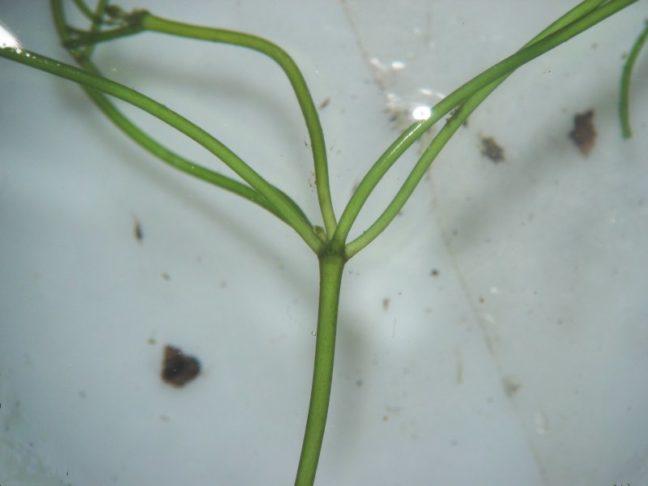University of Wisconsin-Madison researchers are becoming increasingly concerned about the threat of invasive species like Starry Stonewort on Wisconsin’s lakes and the region’s aquatic ecosystems.
Invasive species are defined as non-native plants, pathogens and animals that take over a specific region and have the potential to out-compete local organisms. Paul Skawinski, Citizen Lake Monitoring Network educator at UW-Stevens Point, said one such species is the Starry Stonewort, an aquatic organism posing an emerging threat to Wisconsin lakes.
Starry Stonewort is a large algae found in lakes native to Europe and Asia, Skawinski said. It was recently discovered in Waukesha County, and has since spread to seven other confirmed bodies of water in Wisconsin, including Little and Big Muskego lakes, Long Lake, Silver Lake and Pike Lake in Washington County.
Skawinski said the species exhibits robust growth and can reach up to 2 meters in height. The growth and effects of invasive species in lakes varies depending on the properties of the specific body of water. Despite geographical differences, invasive species generally threaten fish populations, water safety conditions, ecological diversity and local economies.
Scientific studies, however, have not yet determined the concrete causal effects of Starry Stonewort, Skawinski said.
“There hasn’t been actual research or studies to prove [an effect],” Skawinski said. “There is a missing link.”
Emerald Ash Borer has destructive impact on Wisconsin ash trees, environment
Carol Warden, a researcher at UW-Madison Trout Lake Station, said factors behind the growth of the species are also unclear. Scientists still need to identify which effects they predict, as well as the Starry Stonewort growth rate in Wisconsin lakes.
Despite inconclusive effects, Warden said local efforts to diminish the spread of Starry Stonewort are important.
“People are the biggest factor for how things move, lake to lake,” Warden said.
Educating recreational boat users is a key part of decreasing the spread of any invasive species. Skawinski said the best way to prevent the spread of Starry Stonewort is to make sure boat equipment is clean.
Warden said Wisconsin state laws require boat users to follow specific decontamination procedures to remove any organisms.
Warden said “clean, drain, dry” are the three basic steps the Wisconsin Department of Natural Resources requires.
Invasive species, such as Starry Stonewort threaten the natural beauty of Madison and Wisconsin’s lakes. Additionally, the expansion of the species may inflict increasing costs on city and state governments to manage plant treatment and removal, Warden said.
Warden emphasized the responsibility is deeper than simple legal obligations.
“Put it in the perspective of being good people,” Warden said. “We care about our resources, we care about our lakes.”













